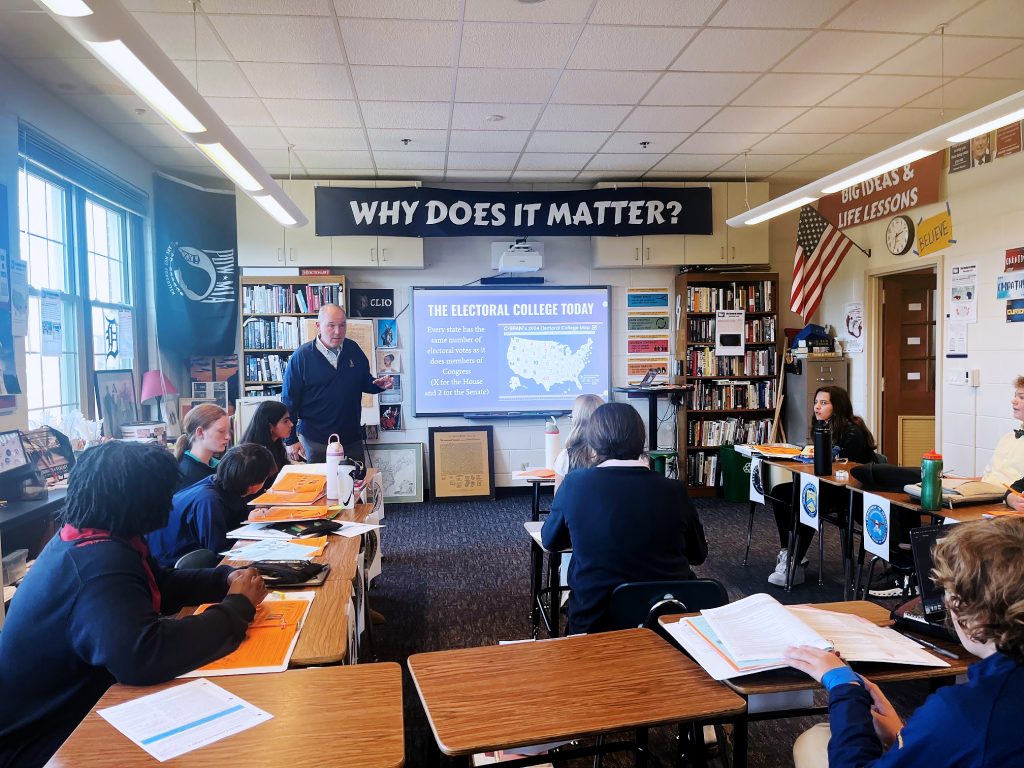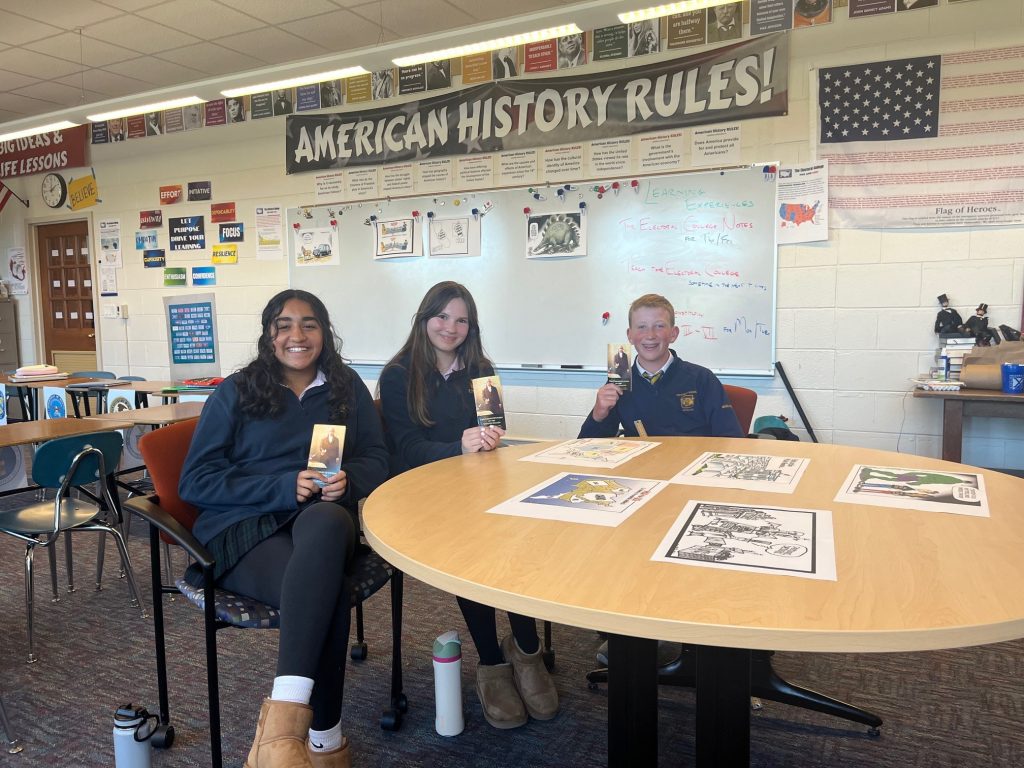They Can’t Legally Vote, But Their Teacher Is Getting Them Engaged In The Election
University School program comes as 42% of Wisconsin social studies teachers report problems with teaching politics.

Chuck Taft is a social studies teacher at the University School of Milwaukee. He is teaching eighth graders about the Electoral College. Corrinne Hess/WPR
With R.E.M.’s “World Leader Pretend,” playing in the background, Chuck Taft began his lesson on the Electoral College with a quick recent history lesson.
“This, by the way, is from the Green album, which I vividly remember came out in November 1988,” Taft says. “Rolling Stone had an ad that said ‘Two things to do: buy R.E.M’s Green and vote.”
For the next 90 minutes, the students, sitting in seats set up like the Executive Branch of government, are captivated to learn about how the Constitution is related to the upcoming presidential election.
This particular day, where the students learn about the Electoral College, is Taft’s favorite lesson.
“I think social studies now might be the most important subject that we can teach in our schools because it’s all about the real world and the things that are happening on the front page or the front screen,” Taft said.
“I have students in my class right now that are 14. They will vote for president when they are seniors in high school,” Taft continued. “They need to start to understand our political process and really also start to understand how to make really good decisions for themselves and what’s going on in the political world.”
To give young people this base, Taft arms his students with a pocket-sized Constitution.
The message seems to be resonating.
“The Constitution is the foundation for our nation today,” said Elise Fathallah, 13. “The way that the presidential candidates want to change it, it’s interesting to think, would the original framers of the Constitution, or would the original Founding Fathers and writers of the Constitution agree? Or would they think, ‘Oh, maybe that’s not such a good idea.’”

Aneesha Rao, Elise Fathallah and Coughlin Mellowes are eighth graders at the University School of Milwaukee. Corrinne Hess/WPR
For his part, Taft keeps his own political beliefs close to the vest.
“I always say I don’t want you to vote who I vote for, I want you to vote with an educated mind,” Taft said. “I don’t mind if another teacher in another discipline says who they’re voting for, but I really feel because I am the social studies teacher, I want to be as politically neutral as possible.”
Taft says the school is politically neutral, but not value neutral. As a teacher, Taft feels free to criticize both parties.
That’s a bit of an anomaly for social studies teachers in Wisconsin.
A survey from the Wisconsin Council for the Social Studies found 42% of respondents reported that building administration, school boards or community members lodged complaints or put restrictions on lessons related to politics, an election or current events.
Sarah Kopplin, president of the group and a social studies teacher at Shorewood Intermediate School, told WPR’s “Wisconsin Today” that an alarming number of social studies teachers around the state have seen pushback on their lessons about elections and other current events.
Wisconsin does not require high school students to take a civics or government class. But Wisconsin does require all high school students to pass a civics test to graduate.
Back at University School, Taft says he wants students to disagree amicably about political issues so they can see the world through different lenses.
Wisconsin eighth graders connect Constitution with presidential election was originally published by Wisconsin Public Radio.
If you think stories like this are important, become a member of Urban Milwaukee and help support real, independent journalism. Plus you get some cool added benefits.



















